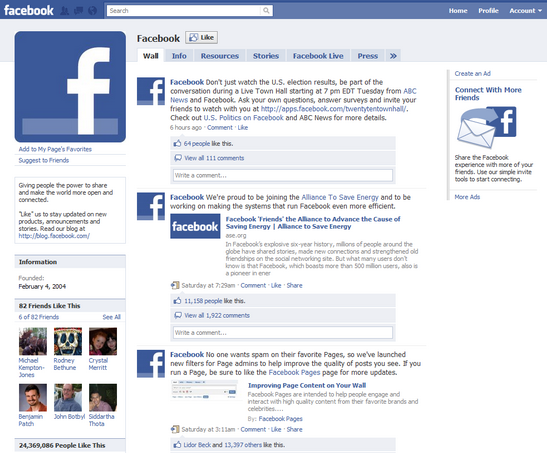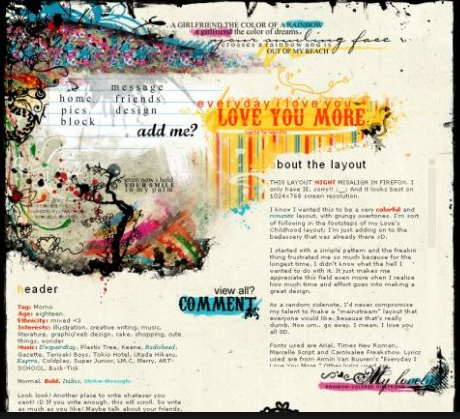I know, nobody wants to be associated with Myspace anymore. Myspace is your best friend’s older brother who everyone idolized and said was really going places, but now spends all his time awkwardly crashing your parties, pretending he’s still young and hip because he taught himself how to be a D.J (and he’s not even a good one).
In the context of identity formation, however, the death of Myspace (and subsequent galactic domination of Facebook) also rang a death toll for creative and individual expression through technology. According to a recent sociology paper on Facebook and identity formation by Shanyang Zhao, Sherri Grasmuck and Jason Martin, identity is how we are known to others and involves both us presenting ourselves in a certain way, and the endorsement of that presentation by others.

In class this week, we talked about how Facebook boxes people in and crafts their identities for them through a Western middle-class perspective, even selecting which life events are most important (e.g. getting married, having kids, changing jobs) automatically on your Timeline. Furthermore, since we are more likely to put up content that will get endorsed by the rest of our network, people in the same network are likely to put up similar content. Combine that with the fact that psychologists have found that people usually create first impressions within one tenth of a second (far too quickly for them to, for example, read that in-depth funny story in your Notes section since their eyes are being diverted to the starred important parts of your Timeline), and most people’s life stories are ending up remarkably similarly.
This is when the death of Myspace starts becoming a tragedy for individualism. On Myspace (before the Justin Timberlake overhaul, at least), people still put up content that was likely to be endorsed by their network, but what was highlighted was entirely within their creative control. The unique part of Myspace lay in the completely customizable layout. Again, since these first impressions are made quickly, look at the differences between a Facebook profile and a Myspace page from the same time period (circa 2008):


From a personal perspective, I know that I have a better sense of the personality of the Myspace page’s user than the Facebook’s. Objectively, the loss of Myspace has forced us all to create identity within Facebook’s standardized layout. We may each have a different and unique romantic partner, but we all have to present our relationship in the same way, in the same place, using Facebook’s definitions of relationships. Although that unique Myspace customization is now long a thing of the past, it’s a shame that the crafting of our life narratives online has become Mad Libs instead of a personal account – we can be unique and funny and even try to subvert the system, but only within the spaces given to us.